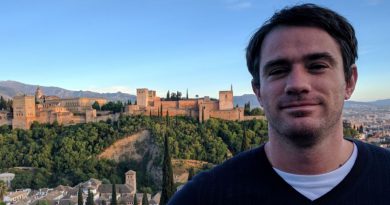In a small town north of Prague, Ukrainian Iryna and her son have found a home
A local Czech community has come together to help fleeing Ukrainians. One of them tells her story.
In an unassuming town not far out of the Czech capital of Prague, where houses line the Vltava river and crawl up the hill through the woods, lives a community who have joined forces to offer their homes, their time and their services to fleeing Ukrainians.
Close to 200 Ukrainian refugees who have fled to the Czech Republic have been accommodated in residents’ homes in the town of Roztoky since the invasion by Russia in February. And about 400 locals have offered a room in their home, or their possessions and services, to help. Roztoky is 12km out of Prague, but with an air of seclusion, community and nature. At the train station, one meets the whiff of river air, and is guided by Google Maps up a hill and through the trees. Still, it’s home to almost 9,000.
Iryna Fitsyk, 30, and her seven-year-old son are two of the many Ukrainians who have found a home in this small, green town, after fleeing their country on March 1st following the bombing of a town near Iryna’s family’s home. Just days after arriving in Prague, Iryna moved into the spare room of a family in Roztoky.
“I am very grateful for their kindness and after the victory of Ukraine I plan to give gifts to everyone and invite them to myself. They are wonderful people,” Iryna said, on a sunny afternoon in her bedroom in Roztoky, while her son sat nearby playing video games. She is clever, generous, and quick to make friends.
But while the locals of Roztoky were quick to open their doors to those in need, one local in particular spotted a need for management shortly into the refugee crisis.
“It wasn’t coordinated, and I thought well what will happen next week and what will happen the week after that?” Zuzana Šrůmová, a software developer from Roztoky said over a beer.
Zuzana is one of the driving forces of a community center in Roztoky called Sdružení Roztoč, which organizes arts and cultural events in the town, including an annual Mardi Gras with crowds of up to 10,000 people. But when Zuzana and her team stepped in to manage the movement of Ukrainians into their homes, the organization’s role shifted. And they did such a good job that since the crisis, about 12 other organizations from around the Czech Republic have asked them for advice.
“The refugees needed help, the hosts needed help, and the Town Hall needed help. Because all the hard things will fall on the host family but then it will fall on the Town Hall, and they will have to care for these people. Someone has to fulfill the need,” Zuzana said.
So Zuzana decided it should be her, along with Sdružení Roztoč and about 400 volunteers from around Roztoky.
“We had already done things like this, but much smaller. For example making covid masks. And I have experience from Sdružení Roztoč, I have experience from school because I used to be a teacher and I have experience with software development.”
Our home is your home
The Czech Republic has so far granted special visas to over 326,750 refugees from Ukraine. While the Czech Republic has no direct border with the country, it has a large Ukrainian minority and cultural proximity to Ukraine, and so has become a destination for many of the refugees, with the government having prepared government buildings and hotels as well as houses to accommodate those in need.
“The Czech people know Ukrainians very well because many have come here,” Zuzana said. “For a long time we’ve seen Ukrainians who have helped us a lot and we have to give back.”
A mix of gratitude and hope
Iryna left Ukraine to the wishes of her husband, who is working to protect their country. She worked as a garbage sorting manager and lived near Lviv, until fleeing. Her son, Lev, speaks excellent English for his age, consuming it through his video games. He is shy and polite, and gives an air of optimism. They live in a room with two beds, and have access to their own kitchen and bathroom.
“I decided to leave Ukraine when my husband went to serve in the army. He said he would be more calm if our son and I left, and would be able to focus on saving Ukraine,” Iryna said.
“I lived in Ukraine in the Pustomyty near Lviv, but before that I lived in Volodymyr where my family – mother, father, brother, grandma and grandpa – live. It was a safe place, but on the 27th of February Russia struck near Volodymyr. Then on the 18th March Russia struck Lviv and I think now Volodymyr and Pustomyty are dangerous places. My parents decided to stay in Ukraine because my father wanted to defend Ukraine and my mother stayed with him.”
“On March 1, I crossed the border between Ukraine and Slovakia. On the border Malteser Relief Service helped me.”
From there she and Lev were picked up by a volunteer from Slovakia who paid for her hotel in the capital, Bratislava, for a night. He then bought them food and train tickets to Prague and helped her to search for a hotel that would give her a free night stay. He paid for the second night. She was then put in touch with Sdružení Roztoč who found her accommodation in Roztoky.
“I set up a simple google form,” Zuzana said about how they started to help manage the situation. “There are many people who say that they will accommodate some people from Ukraine and we said, if it’s you, please fill the form. If you want to help with coordination, if you want to help with donating something, fill the form, and so on.”
They then started to make teams to work on different logistical areas, and at first acted like a call center.
“From the beginning we knew we didn’t need only an accommodation team, what we needed was also a team to care about material stuff, because the people coming usually didn’t have anything to eat, didn’t have clothes, didn’t have anything,” she said.
So they then made a Google spreadsheet, where anyone from Roztoky could add items or possessions they had to offer and their phone number, so that when Zuzana and her team discovered they needed something to help a Ukrainian, they could contact them. By doing this, they even managed to furnish an empty apartment in 10 minutes, after someone had offered a whole flat just without any furniture.
“And it’s a Google spreadsheet, nothing more,” she said.
A natural tendency to help
Martin Kuna and his wife Alena, who now house Iryna and Lev, wanted to help in any way they could, and so found contacts through Sdružení Roztoč.
“Generally speaking, it is necessary to support any people in need. You cannot, of course, help all of them, but the closer they are, the more it is your task,” Martin said.
He quoted the slogan of the Velvet Revolution: “Who, if not us, when, if not now?“
Martin suggested that the Czechs have been so quick to open their doors to Ukrainians as Czech people also have a historical experience with a Russian invasion, that of 1968.
“And most of them know that nothing good ever came from Russia to Central Europe,” he said. “Knowing the Russians, Czech people are scared of the future, perhaps even more than the Westerners.”
While Iryna is grateful for the help she has received from all those who have helped her so far, she of course still longs for home, along with her son.
“Physically, everything is fine, but I am very worried about my family and Ukraine. Sometimes Lev asks me about Ukraine. Are there more sirens, he asks, are Dad and Grandma still alive? When will we be back?”
She quotes a poet from Ukraine, Lesya Ukrainka, who wrote: “I laughed in order not to cry”.
“But I believe in our victory,” Iryna said. “I believe in the military and volunteers. I believe in every Ukrainian. And I see the other countries help ours, and that’s why I can be a positive person. Everything will be fine.”
And in the meantime, communities like those in Roztoky are bringing together their minds, their possessions and their homes to offer any solace and security they can. Zuzana said that after 25 years of connecting people with each other, an organization can do a lot.
“And it makes something, when you do something for 25 years in one town, you set up a network and you change an environment. Then it’s easy to use it as a platform.”
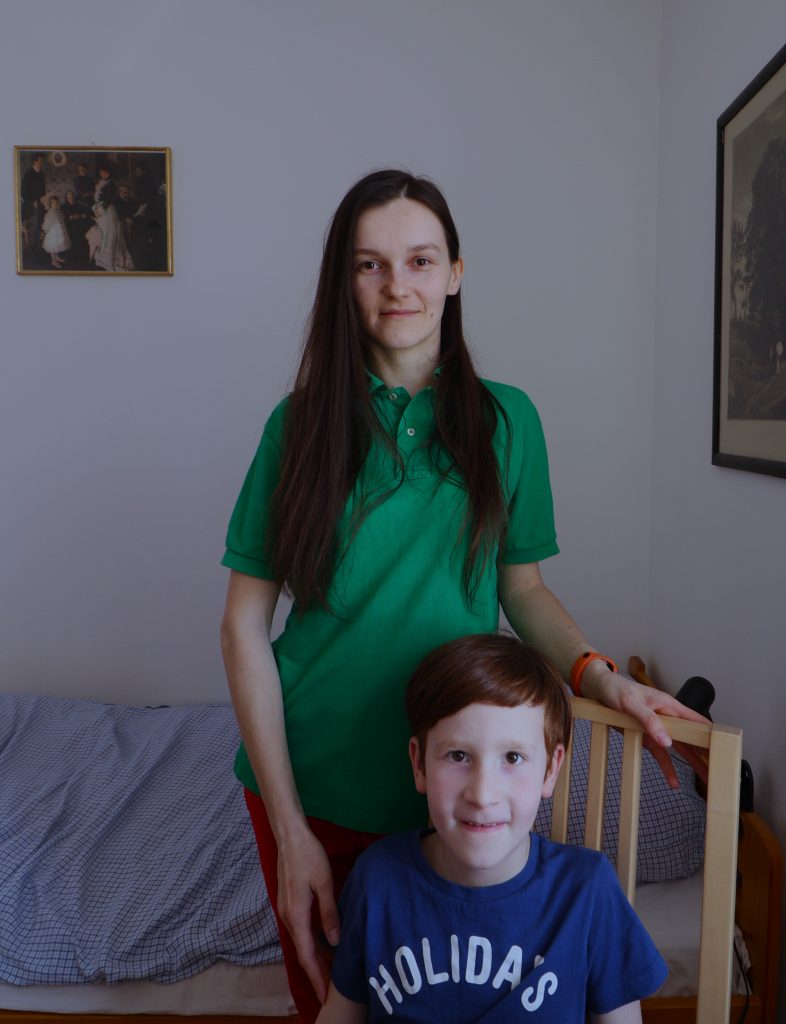
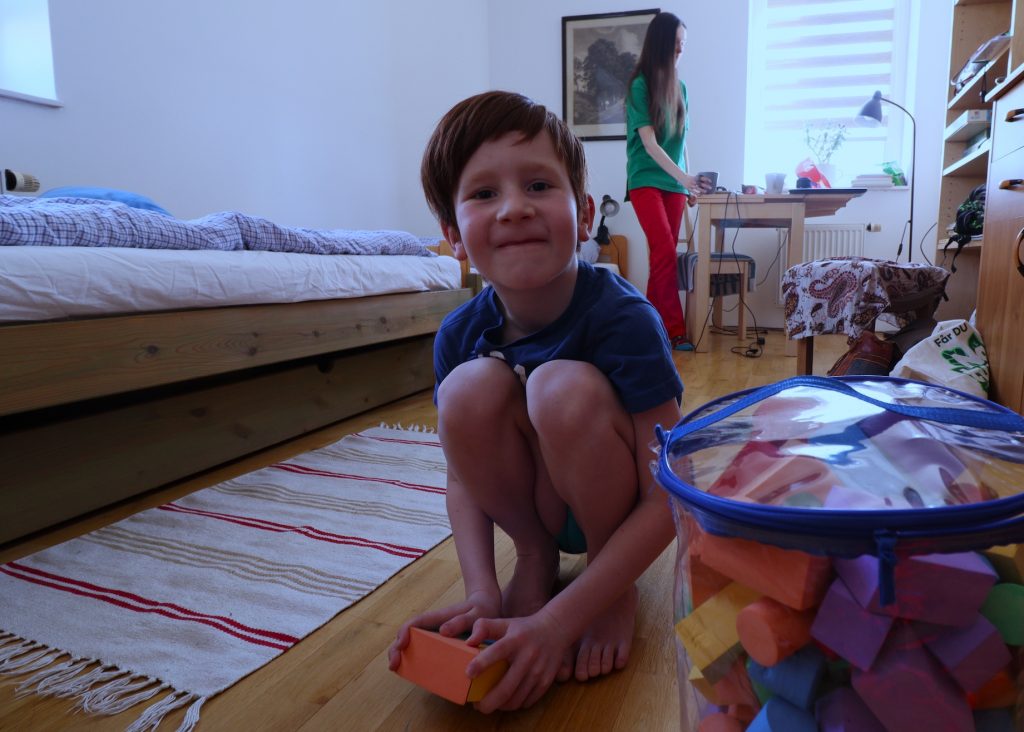
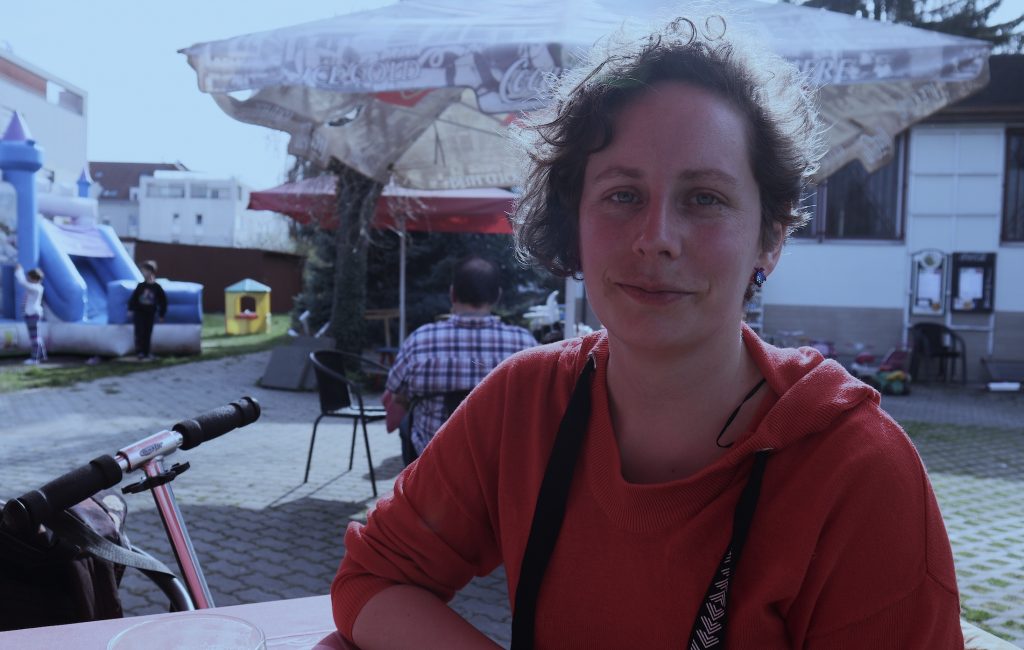
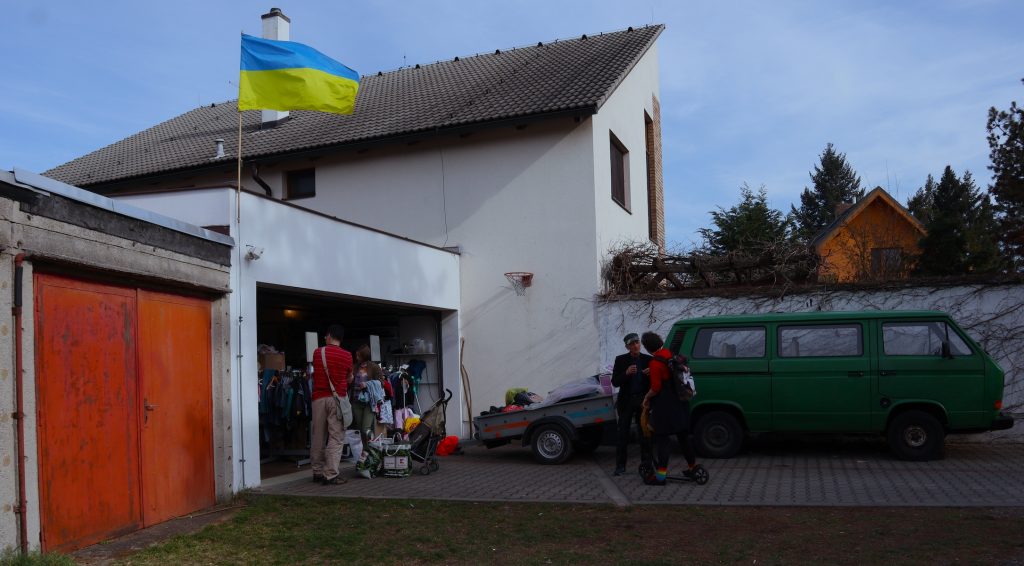
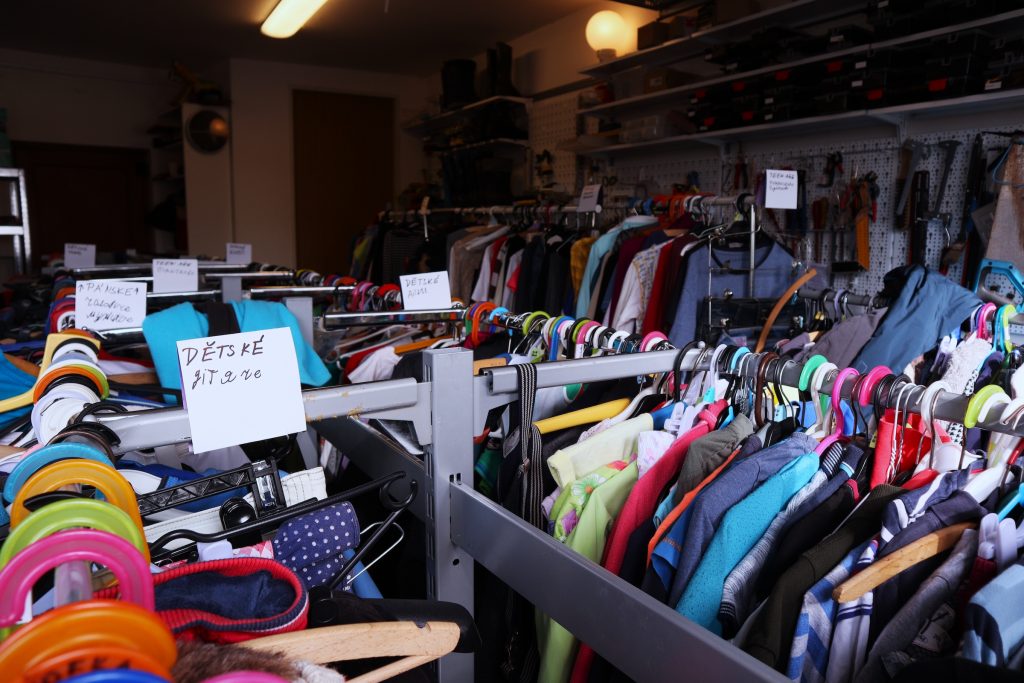
Foto: Amina McCauley
Příspěvek vznikl v rámci kurzu Foreign Correspondence pod vedením doc. PhDr. Alice Němcové Tejkalové a Ph.D. Mgr. Veroniky Mackové, Ph.D.




